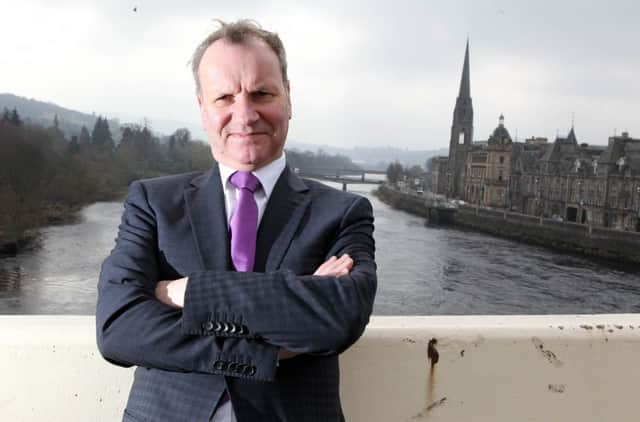Pete Wishart: Growing economy on creativity of Scots people


Our tradition of creativity and invention reaches back through the centuries and in the future we have an opportunity to design our economy so that much more of what we produce is determined by the creativity and invention of the Scottish people. We have created a world class hub in Dundee where the success of the computer games industry has helped fire a city wide regeneration and where we will launch our report today. Our artists have solid international reputations and we host the largest arts festival in the world.
But many formidable challenges remain in the sector. Scotland’s creative industries occupy an environment that is constantly changing and which is incessantly being redesigned. It is a sector where the adept and resourceful succeed but where constant re-invention is a mandatory requirement.
Advertisement
Hide AdAdvertisement
Hide AdWhat sort of Government support should therefore be applied to maximise success and what can we do to create the optimal environment where this sector can grow?
Responsibility for Scotland’s creative industries is split between the Scottish and UK Government. Arts and heritage, funding and management are the responsibility of the Scottish Government mainly through Creative Scotland and Scottish Enterprise. Intellectual property, tax stimulus and broadcasting all remain UK responsibilities. Most of the bodies representing Scotland’s creative sectors are also London based such as the British Film Institute, UK Music and the Creative Coalition
The first problem the Scottish Affairs Committee had when conducting an inquiry into our creative industries was in determining the size of the sector. Figures for those employed range from the Scottish Government’s 71,000 to the generous UK Government figure of 174,000. These different figures are down to different definitions used by the UK and Scottish Governments. The first recommendation we therefore make is the two Governments agree on a robust assessment of the size of the sector so that policies supporting growth in the creative industries can be properly assessed.
Where we did look at the management of the creative industries in Scotland and the operation of Creative Scotland and Scottish Enterprise our major concern was the impact of the reserved issues and the collaboration between UK and Scottish bodies. For example, where tax reliefs have been broadly welcomed by the creative sector we were surprised to learn that they were of minimal benefit to Scotland because of the scale of Scottish creative enterprises and the draw of the hub of London. We therefore recommend that the UK Government look at variable rates of tax relief for differing parts of the UK recognising the size of the sectors. Intellectual Property has also been seen as an issue that is something that just happens in London. IP rights underpins so much of the capitalisation and protection of creative endeavour it is critical that the Intellectual Property Office reviews its Scottish operations and is more available in Scotland particularly with the coming of the Single Digital Market and the regularisation of online content across Europe.
It is broadcasting, though, that remains the great anomaly. Curiously reserved and outwith Scotland’s creative architecture, there remains critical issues that almost shout out to be addressed. Regional quotas require public service broadcasters to commission outwith London but all sorts of inventive means have been found to get round this. More has to be done to support Scottish production companies and access to commissioners has to be improved. In Scotland the BBC has the lowest level of public support anywhere in the UK and there is a concern that the BBC is failing to meet the expectations of Scottish audiences. Where we don’t offer a recommendation about the devolution of broadcasting we note favourably the suggestion of a properly federal structure for the BBC across the UK.
We remain upbeat about the fortunes of Scotland’s creative industries and confident that Scotland is well placed to take advantage of new opportunities. With care and attention our creative industries can become world class. Growing our economy on the imagination of our people? Now that’s something we can all sign up to.